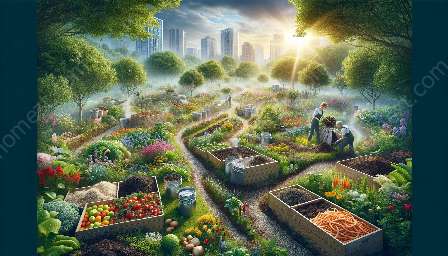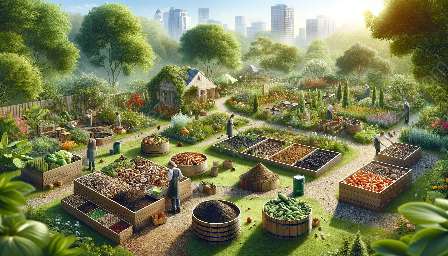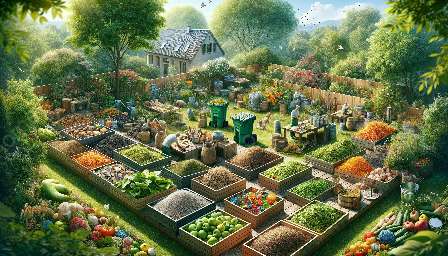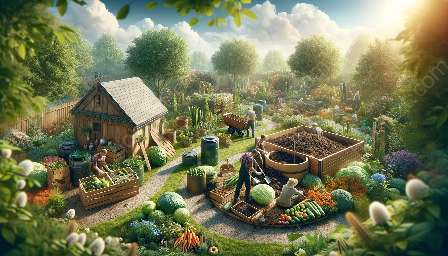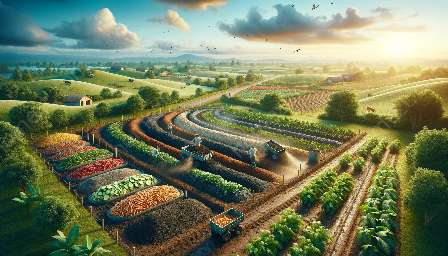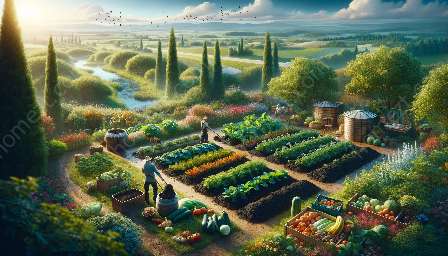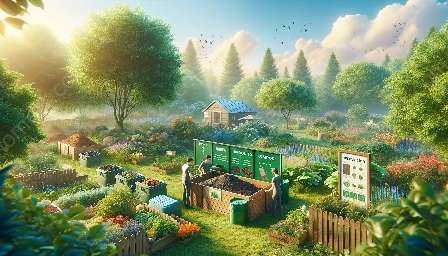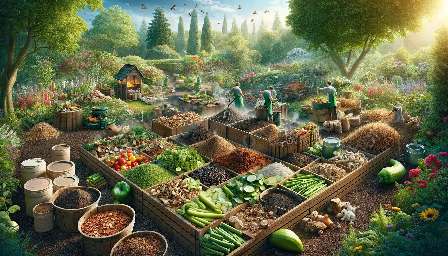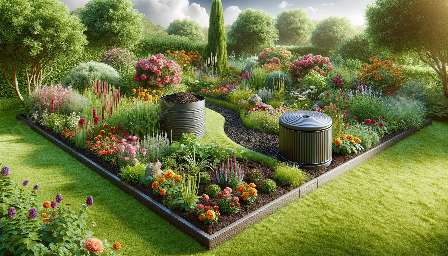Composting is a key practice for sustainable farming, supporting both gardening and landscaping. By understanding the principles of composting and its benefits, farmers, gardeners, and landscapers can enhance soil health and promote eco-friendly agricultural practices. This comprehensive guide explores the importance of composting, its compatibility with gardening and landscaping, and its role in fostering sustainable agricultural systems.
The Importance of Composting for Sustainable Farming
Composting plays a crucial role in sustainable farming by promoting nutrient cycling, enhancing soil fertility, and reducing waste. Organic materials such as kitchen scraps, yard trimmings, and livestock manure can be transformed into valuable compost, providing essential nutrients to plants while improving soil structure and moisture retention.
Enhancing Soil Health and Fertility
Compost enriches the soil with organic matter, essential nutrients, and beneficial microorganisms. By maintaining a healthy soil ecosystem, composting supports the growth of robust and resilient crops, contributing to sustainable agricultural production. Furthermore, the improved fertility and structure of compost-amended soils reduce the need for synthetic fertilizers and chemical inputs, promoting natural and eco-friendly farming practices.
Reducing Environmental Impact
Composting significantly reduces the environmental impact of farming and landscaping activities. By diverting organic waste from landfills, composting minimizes greenhouse gas emissions and mitigates soil and water pollution. Furthermore, compost application reduces the reliance on chemical fertilizers and pesticides, thus contributing to a more sustainable and ecologically balanced agricultural system.
Compatibility with Gardening and Landscaping
Composting aligns seamlessly with gardening and landscaping practices, offering numerous benefits to home gardeners, horticulturists, and landscape designers. Whether cultivating vibrant flower beds, nurturing fruit and vegetable gardens, or designing sustainable landscapes, composting can significantly enhance the success and sustainability of these endeavors.
Improving Soil Structure and Moisture Retention
For gardeners and landscape professionals, compost-enriched soils exhibit improved structure and water-holding capacity, contributing to healthier, more vibrant plant growth. By incorporating compost into garden beds, lawns, and ornamental plantings, gardening and landscaping enthusiasts can create resilient and visually stunning outdoor spaces while minimizing water usage and environmental impact.
Promoting Biodiversity and Ecosystem Health
Composted soil fosters diverse and thriving ecosystems, supporting beneficial soil organisms, earthworms, and microbial communities. This biodiversity not only contributes to the ecological balance of gardens and landscapes but also enhances plant resilience, disease resistance, and overall vitality. As a result, composting aligns with the principles of organic gardening and sustainable landscaping, promoting harmony with nature and minimizing synthetic inputs.
Implementing Composting in Farming and Landscaping Operations
For farmers and landscaping professionals, integrating composting into operational practices offers numerous advantages in terms of productivity, resource efficiency, and environmental stewardship. By adopting composting techniques and utilizing compost-based products, agricultural and landscaping operations can optimize their performance while minimizing their environmental footprint.
Utilizing Compost-based Amendments and Mulches
Incorporating compost-based amendments and mulches into farming and landscaping practices enhances soil fertility, promotes plant growth, and minimizes erosion. Whether applying compost-based fertilizers, top dressing soils with compost, or utilizing compost mulches, farmers and landscapers can harness the benefits of composting to improve crop yields, conserve water, and reduce the need for synthetic additives.
Managing Organic Waste Streams
By managing organic waste streams through on-site composting facilities or community partnerships, farms and landscaping enterprises can minimize waste disposal costs, reduce landfill contributions, and create valuable compost resources. Transforming organic residues into nutrient-rich compost closes the loop on resource utilization, aligning farming and landscaping practices with the principles of circular economy and sustainable resource management.
Enhancing Agroecological Approaches
Composting serves as a cornerstone for the implementation of agroecological approaches in farming and landscaping, emphasizing ecological balance, biodiversity, and soil health. By fostering healthy soil ecosystems through composting, agricultural and landscaping operations can support resilient, productive, and environmentally sustainable systems that promote public health and contribute to a healthier planet.

